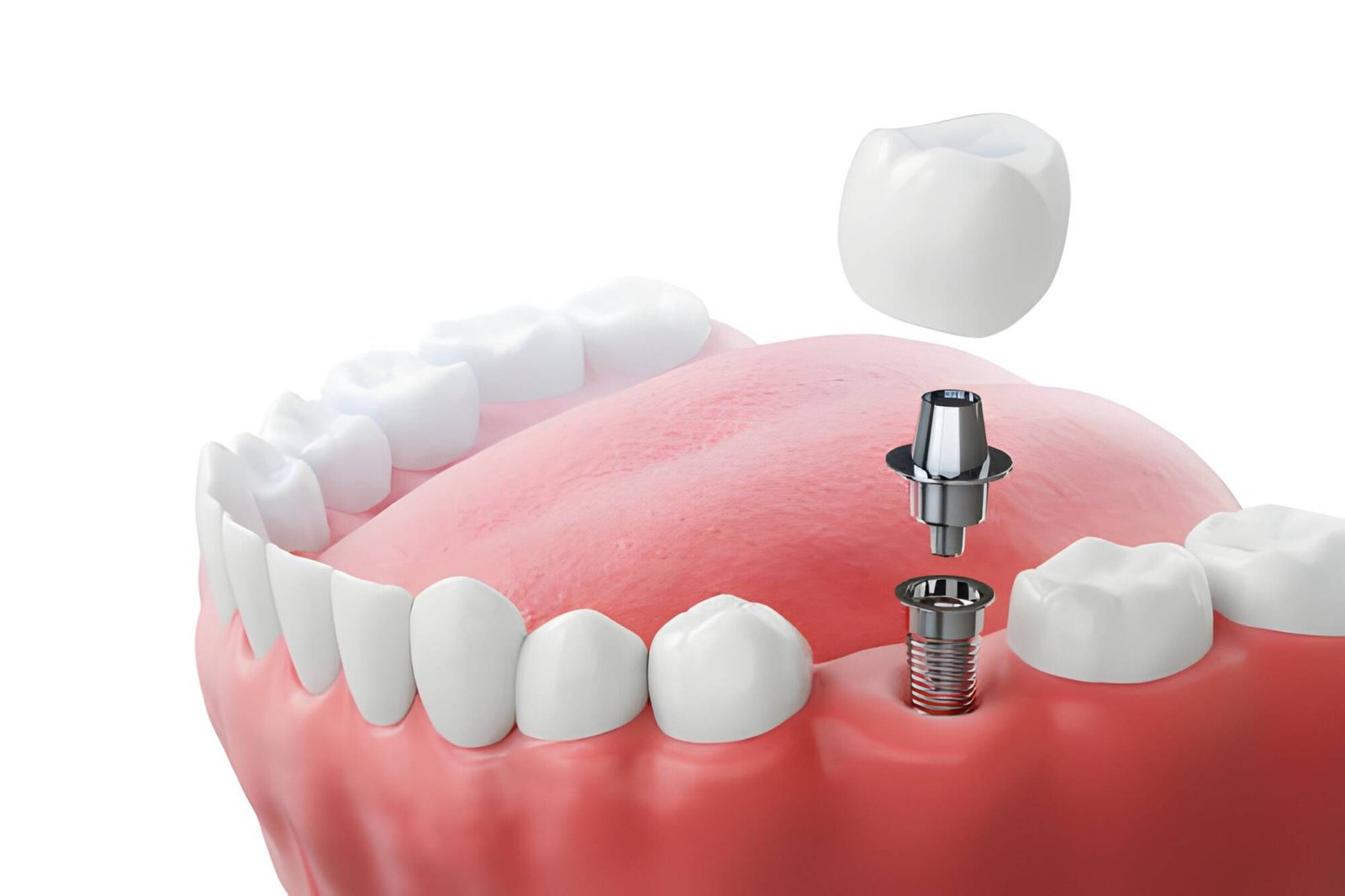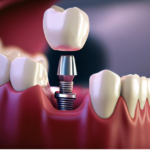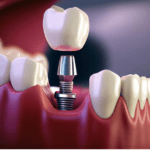Dental implants are an excellent choice for replacing missing teeth. They are designed to be a long-term solution and can last many years with proper care. In this article, we will explore how long Dental implants last. We will also cover factors that can affect their longevity, types of implants, and what to do if an implant fails.
Understanding Dental Implants
A Dental implant is a small titanium post that is placed into the jawbone. It acts as a root for a prosthetic tooth, called a crown. There are three main parts to a dental implant:
- Implant: The titanium post that is surgically placed into the jawbone.
- Abutment: The connector that holds the crown to the implant.
- Crown: The visible part of the implant that looks like a natural tooth.
How Long Do Dental Implants Last?
Dental implant are designed to be a permanent solution. The implant itself can last a lifetime if you take good care of it. However, the crown may need to be replaced after 10 to 15 years due to normal wear and tear. With excellent oral hygiene, some crowns can last even longer.
Types of Dental Implants
There are two main types of dental implants:
- Endosteal Implants: These are the most common type. They look like small screws and are placed directly into the jawbone. The procedure involves two steps. First, the implant is placed into the jawbone. After it heals, the crown is attached.
- Subperiosteal Implants: These are placed under the gum but above the jawbone. They are used for people who do not have enough healthy jawbone for endosteal implants. This type of implant involves placing a metal frame on top of the jawbone. The gums heal around the frame, securing it in place.
Mini Dental Implants
Mini dental implants (MDIs) are smaller than regular implants. They are about the size of a toothpick. MDIs can be used in areas with less bone and are often used to secure dentures. They are made to be permanent. But, there is little research on their long-term success. Some studies suggest they can last as long as standard implants.
Factors Affecting Implant Longevity
Several factors can affect how long dental implants last:
- Oral Hygiene: Good oral hygiene is essential. Brush your teeth at least twice a day and floss daily. Regular dental check-ups are also important.
- Bone Health: The implant needs to bond with the jawbone. If there is not enough bone, the implant may fail. Bone grafts can help build up the bone if needed.
- Smoking: Smoking can reduce blood flow to the gums and interfere with healing. It also increases the risk of gum disease, which can lead to implant failure.
- Medical Conditions: Diseases like diabetes or osteoporosis can harm bone health and healing. They raise the risk of implant failure.
- Teeth Grinding: Grinding your teeth can put too much pressure on the implant. This can cause it to become loose or even break.
What Happens If an Implant Fails?
If a dental implant fails, it usually happens during the healing process or within the first few months. Signs of a failed implant include pain, swelling, or the implant feeling loose. If this happens, it’s important to see your dentist right away.
Treatment for Failed Implants
If an implant fails, your dentist will first remove the implant. They will then clean the area and assess the bone. If the bone is healthy, a new implant can be placed. In some cases, bone grafting may be needed before placing a new implant. The success rate for re-implants is generally high, especially if the cause of the initial failure is addressed.
Final Thoughts
Dental implants are a reliable and long-lasting solution for missing teeth. With proper care, the implant itself can last a lifetime, though the crown may need replacement every 10 to 15 years. Taking care of your oral hygiene and avoiding smoking are key. So is managing medical conditions. These things ensure the longevity of your implants. If an implant does fail, it can often be replaced successfully. Always consult your dentist for personalised advice and treatment options.
Saint Visage Dental Group – Your Implant Specialists
At Saint Visage Dental Group, our team of implant specialists is dedicated to providing you with the highest quality care and treatment options for your dental implants. Whether you are considering dental implants for the first time or need to replace an existing implant, we are here to help.
Contact us today to schedule a consultation and learn more about how dental implants can improve your smile and oral health.
Frequently Asked Question
How long does the dental implant procedure take?
The dental implant procedure typically takes several months to complete. This includes the initial placement of the implant, healing time, and the attachment of the crown.
Are dental implants painful?
Dentists usually perform the implant procedure under local anesthesia. So, you should not feel pain during the surgery. Some discomfort and swelling after the procedure are normal and can be managed with pain medication.
Can anyone get dental implants?
Most people can get dental implants. But, you need healthy gums and enough bone to support the implant. Your dentist will assess your oral health and determine if you’re a suitable candidate for implants.
How do I take care of dental implants?
Taking care of dental implants is similar to taking care of natural teeth. Brush and floss regularly, and visit your dentist for check-ups. Avoid chewing on hard objects that can damage the implant.
What are the advantages of dental implants over other tooth replacement options?
Dental implants offer several advantages, including improved stability and durability compared to dentures. They also help preserve bone and maintain the natural shape of your face and jaw.




